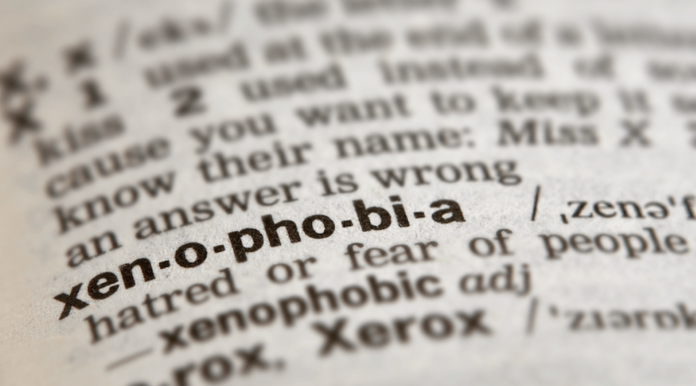Ever since 2008, there has been periods of intense xenophobic violence and riots against black foreign nationals and immigrants. In the past fews years, the violence has moved online in the form of xenophobic hashtags and accounts which spread hate.
RELATED:
Xenophobia Permeates All Levels Of South African Politics
I’ve lived in South Africa for 13 years (since 2008) and I’ve experienced verbal xenophobic threats on several occassions. The xenophobic hashtags that trend on Twitter trigger my depression and anxiety. I struggle to focus and find myself fearing for my family and my future in this country.
RELATED:
Nationalist pro-South African hashtags spread hate online
Encountering and dealing with xenophobic discrimination can have a negative effect on one’s mental and physical health. Below are some coping mechanisms of what you can do to cope with the distress brought by xenophobic discrimination.
Find a support group
It will be helpful to reach out to people you trust and get the support that you need. You are not alone and many others are going through similar experiences. Speaking about your experience and hearing about others’ stories can be a healing process. We are stronger when we can stand together and support each other.
In 2009 the International Organisation for Migration (IOM) launched the “ONE” Movement to combat xenophobia and racism in South Africa. In 2019 South Africa launched its National Action Plan to combat xenophobia, racism, and discrimination.
Seek professional support
Don’t be afraid to seek mental health support. While encountering any form of formal authorities even if it’s a mental health institution can be further triggering, getting help is important.
You can access resources from right2know, the Coalition Against Xenophobia (CAX) and immigration lawyers and law firms in South Africa.
Decide what response is right for you
In some situations, you may have the strength and energy to stand up and fight against unfair treatment. While it may feel that it is your responsibility to speak up, at times you may not have the energy or mental space to deal with it. It is okay to walk away and focus on your healing.
Speak up when you are ready
Don’t be afraid to have your voice heard. You can share your experience when you are ready and you can find initiatives in the community to change the xenophobiic discrimination.
Engage in self-care activities and indulge yourself in activities that bring you joy
Embrace your strengths and identity
Feeling discriminated against can be hurtful. It is important to remind yourself that it is not your identity. Embrace your culture through books, music, art, film, or food.
Educate yourself on the history of xenophobia in South Africa and around the world
The more you learn about the history, the better you can steel yourself against the ignorance that fuels prejudice and discrimination.
RELATED:
Zimbabweans in South Africa face uncertain future over ZEP status









